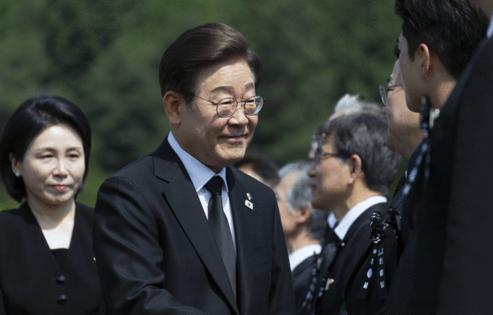South Korea's Lee calls for 'new era' with northern neighbor
Published in News & Features
South Korean President Lee Jae Myung said his country was committed to de-escalating tensions with North Korea as part of an effort to “usher in a new era of peaceful co-existence and renewed growth.”
In an address to the United Nations General Assembly in New York on Tuesday, Lee pledged to “restore broken inter-Korean trust and shift to a stance of mutual trust.”
He said South Korea would seek to “end the vicious cycle of unnecessary” military tensions and hostile acts on the Korean Peninsula, including by bolstering exchanges with North Korea, even amid the “grave task” of denuclearization.
The remarks were part of a sweeping address that drew on democratic values and paid tribute to the U.N. and multilateralism as a means to navigate challenges regarding artificial intelligence, climate and development financing as well as confronting hunger and armed conflict.
“There were times when democracy and peace were in crisis,” but each time Korea rose with “indomitable strength” — even amid a “coup,” he said, referring to the political crisis that engulfed his country at the end of last year as he spoke of the parallel 80-year histories of South Korea and the U.N.
Lee, who took office in June, called on the U.N. Security Council to add seats for non-permanent members, in order to reflect changes in the international environment and help with multilateral decision-making.
Lee’s address drew a contrast with President Donald Trump’s speech to the chamber earlier Tuesday. While Trump castigated those in the international community who he said were abetting “uncontrolled migration,” Lee said he wanted to ensure that in South Korea “both nationals and foreigners can be respected as an equal member of society in all fields of life.”
Relations between Washington and Seoul came under strain after hundreds of South Koreans were detained in an immigration raid at a Hyundai Motor Co.-LG Energy Solution Ltd. battery plant under construction in Georgia.
The incident raised fresh doubts about billions of dollars in Korean investment that had been committed to the U.S. when the two countries signed a fresh trade and investment deal at the end of July.
The disagreements haven’t interrupted U.S.-Korean cooperation on a range of defense issues. Last week, the U.S., South Korea and Japan held their first joint multi-domain drills since Lee and Trump took office, drawing threats of “counteraction” from North Korea against what it labeled a war rehearsal.
Trump also has said he hopes to use his relationship with North Korean leader Kim Jong Un to do his part in resolving tensions on the peninsula — including potentially meeting the reclusive leader this year.
©2025 Bloomberg L.P. Visit bloomberg.com. Distributed by Tribune Content Agency, LLC.







Comments